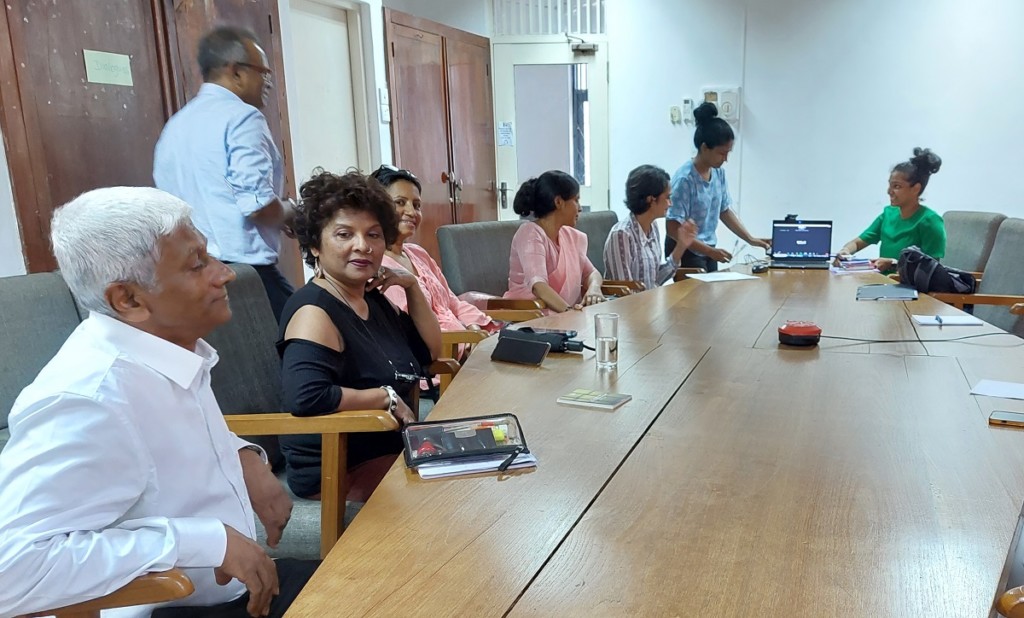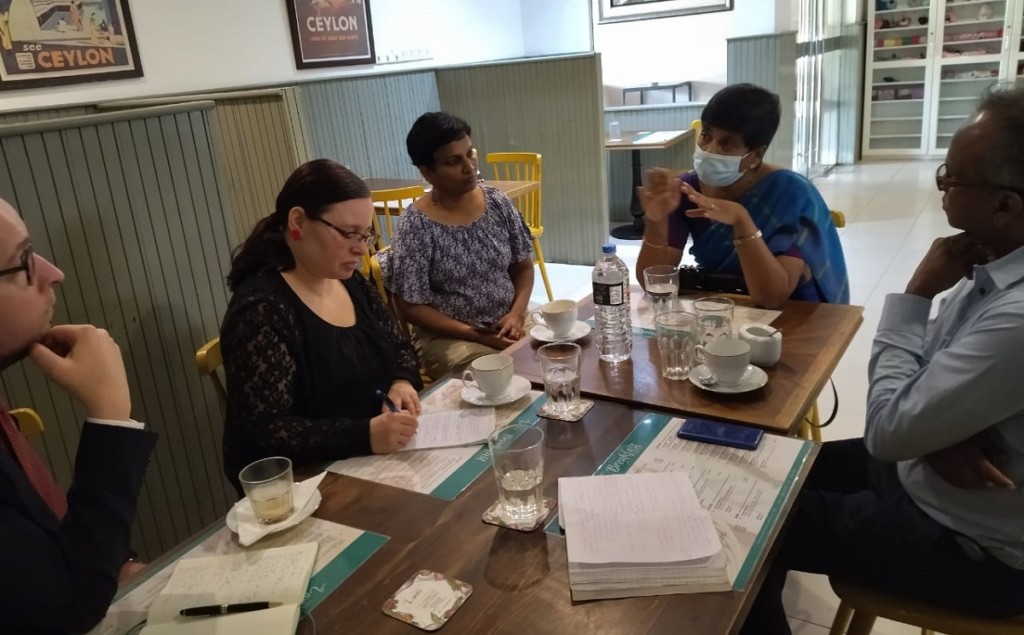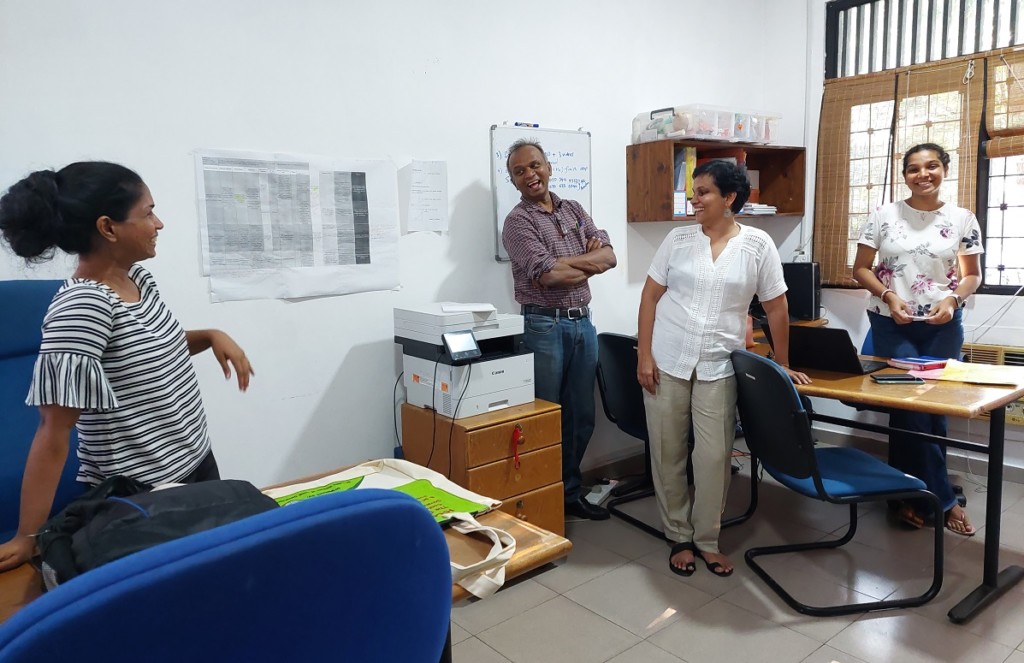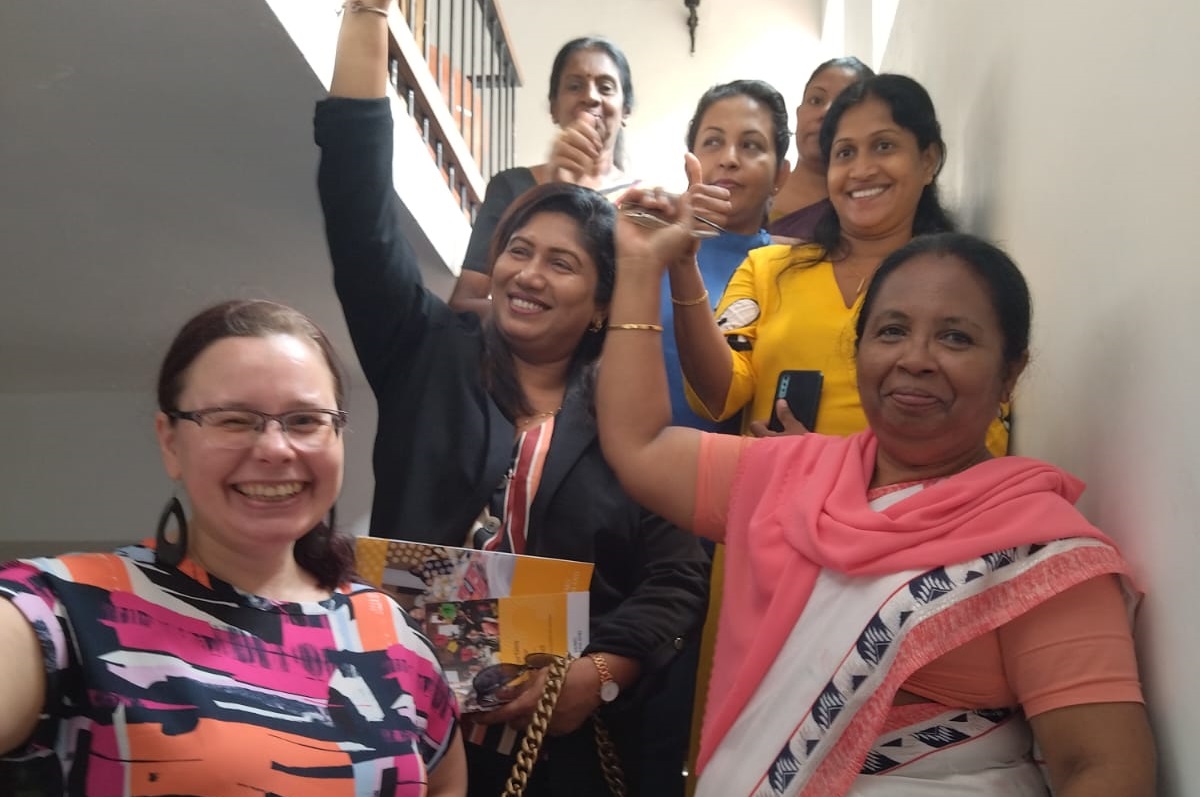Demo Finland visited Sri Lanka in February 2023 for the first time since the start of the COVID-19 pandemic. Demo Finland has co-operated with the Sri Lankan organisation One Text Initiative (OTI) since 2015, first to support the peaceful co-operation of young politicians, and since 2019 to improve the status of women councillors. One Text Initiative is formed by Sri Lankan political parties to promote inclusive political dialogue at various levels of government.
2022 – Year of crisis
The year 2022 was very volatile in Sri Lanka. An economic and political crisis broke out in the first half of 2022: the state was unable to pay its debts, prices skyrocketed due to inflation, and fuel shortages and long power outages made life difficult for citizens in an unprecedented way. In response to the crisis, the protest movement Aragalaya (struggle), which arose mainly among young people, took over the streets of the capital. In the end, the then President Gotabaya Rajapaksa, a representative of a family that had long held top positions in politics, had to flee the country.
The economic crisis was caused by bad economic policies (e.g. tax reliefs and government overspending), but also by the pandemic and loss of tourism. Rajapaksa was replaced by Ranil Wickremesinghe by special parliamentary arrangement. Wickremesinghe has had a long history in Sri Lankan politics, which was reflected in the confidence MPs had in him in a crisis situation. However, his United National Party (UNP) has only one seat in the Sri Lankan Parliament.
Sri Lanka is slowly recovering from the crisis, but politically the situation has remained unstable. The seriousness of the situation is illustrated by the fact that by the end of 2022, 26% of Sri Lankans were in need of humanitarian aid, and malnutrition has been reported to have increased in the country. According to the World Bank, Sri Lanka’s economy contracted by 9.2% in 2022, with an inflation rate of over 70% at its highest.
After a long preparation and a period of uncertainty, the elections were cancelled at the last-minute.
Constitutional amendments that centralise power to the president were cancelled in October 2022, but according to critics, the various institutions are still not sufficiently independent from the president’s power. The crisis can be considered to be more political than economic: who uses the available resources and how.
Demo Finland’s visit took place at an exciting time, as the country was preparing for local elections in March 2023. However, after a long preparation and a period of uncertainty, the elections were cancelled at the last-minute citing that the state did not have the resources to organise them at that moment. However, mistrust towards the President and the Parliament could have materialised in the local elections. In April 2023, it is still uncertain when the elections will be held. The pressure to organise either local or general elections is strong, but the government still cites a lack of money.
Almost 60 local women’s committees and other new ideas
The election situation has a direct impact on Demo Finland’s project, which focuses on working with local politicians. The project started when Sri Lanka had just introduced a new gender quota at the local level, which increased the number of women councillors considerably. A network of women councillors has been established in the project. Its members are trained in different fields, and they also share information and ideas with each other. The most important result of the project is that a separate women’s committee has been established in connection with almost 60 local councils. In these committees, women councillors co-operate across party lines to work towards their goals.
In Sri Lanka, one of the main avenues for women to enter politics has been filling the position of a deceased male family member (e.g. brother, husband, father). Also, especially after the quota was introduced, women have been standing as candidates due to request by their family members. OTI staff and trainers say that when asked at the beginning of some trainings why female councillors got involved in politics, the answer might have been that they represent their husbands. When the matter was asked again after the training, the women knew what they could do in their role and were motivated to work independently and actively. This is where the support of other women is very important.

“Men are very insecure about (trained) women. They want women who say yes to everything”, says Sulochana Pieris, one of the trainers of the project. There are already signs about how big a threat women are perceived to be: “They continue to pick wives and sisters as candidates in these elections, and there are signs that the trained women are not selected neither as quota candidates nor to contest. They have to go to another party to get selected.”
“I got immense experience from OTI trainings on how to talk in public and face situations in the councils. I also learned how to use social media”, says Shanmugam Devapriya from Samagi Jana Balawegaya (SJB) party.
“We learned the basics of politics; what is the council, how to do politics and put forward proposals. In general, how to make maximum benefit of being in the council”, adds Mazeena Bucker from UNP.
Inflation, power outages and lack of fuel made it difficult for some to participate in trainings. The women who participated in the trainings also shared information about what they had learned with those who could not participate.
“In the end, thanks to the trainings and co-operation networks, we took initiatives in the women’s committee to improve the position of those in need: for example, we built public restrooms in the villages and got a small municipal financial support for pregnant women approved”, says Ranjithraj Kulagowry from Elam People’s Democratic Party (EPDP) from the Northern Region of Jaffna.
A women’s committee has been established in connection with almost 60 local councils.
Another significant outcome of the project has been that OTI has signed a Memorandum of Understanding with the Sri Lanka Institute of Local Governance (SLILG), a public institute responsible for the training of all local-level politicians, and OTI has succeeded in getting a gender equality component it has produced to be included in all of SLILG’s trainings. Collaboration with SLILG is essential for the sustainability of the project’s results: after the end of the project, SLILG can continue to promote gender equality thanks to the skills and networks established during the project. In SLILG’s trainings, awareness and knowledge of gender equality is disseminated not only among female councillors, but also among male councillors.
More women needed in the Parliament and political parties
During the visit, Demo Finland met one of Sri Lanka’s only 12 women MPs. All in all, there are 225 MPs in the Parliament, and this ratio describes well the position of women in Sri Lankan politics. Sudharshani Fernandopulle from the Sri Lanka Podujana Peramuna (SLPP) party is the Chairperson of the Women’s Caucus in the Parliament. The Women’s Caucus has promoted, for example, the gender equality programme approved in the Parliament in March 2023. There is no gender quota at the parliamentary level in Sri Lanka, but it has been discussed.

In a separate study, OTI has surveyed the position of women in Sri Lanka’s largest political parties. Fernandopulle confirms a finding that came up in the study as well:
“The central committees of the parties don’t have women in them.”
This reflects the position of women in political parties in general: their place is at the local level without actual decision-making power. The study also revealed, among other things, that it is difficult for women to advance to important positions in the internal structures of the parties, because their value is calculated based on how many voters they bring with them. In this regard, family relations or other social networks are central.
In addition, the study revealed that political parties that had existed longer had a better understanding about promoting the position of women within the party. However, during the turbulent year 2022 in Sri Lanka, several new parties and factions have emerged that do not yet have established structures to support women. According to the research, in many parties, “women’s issues” are seen as separate from other national or macro-level politics.
Support continues
With support from Demo Finland, OTI will continue the process started at the end of 2022 to develop gender equality plans with interested political parties during the last project year. In addition, OTI has established a specific website with profiles of women involved in politics. The profiles have also been shared in various media to increase awareness that it is possible for women to be active in politics.
It is difficult for women to advance to important positions in the internal structures of the parties, because their value is calculated based on how many voters they bring with them.
The cancellation or postponement of the local elections has led to the dissolution of the old councils without information about the election of new ones. From the beginning of 2023, instead of training local councillors, Demo Finland and OTI have turned their attention to what has already been learned about support for women councillors: they started collecting information on how local-level women’s committees have worked, what they have achieved and what the future needs are.
The co-operation between Demo Finland and OTI will end in 2023. During the last programme year, women will continue to be trained. In addition, support is planned for campaigning when the elections finally take place. The members of the women councillors’ network already keep in touch with each other spontaneously with the help of the created communication channels. OTI, in co-operation with SLILG, is able to continue working with women politicians with the help of the network even after the last project year.


